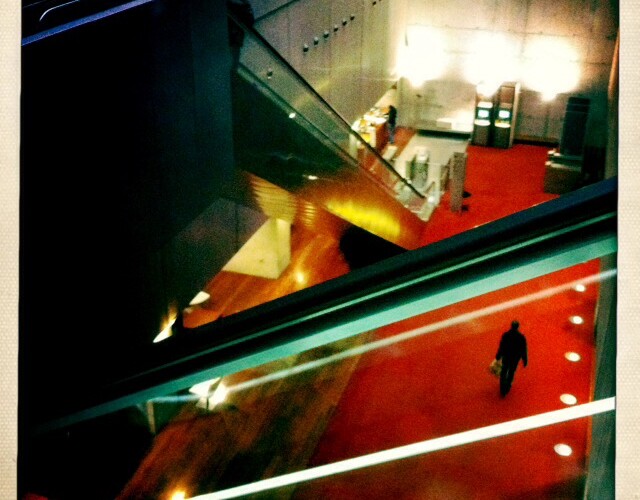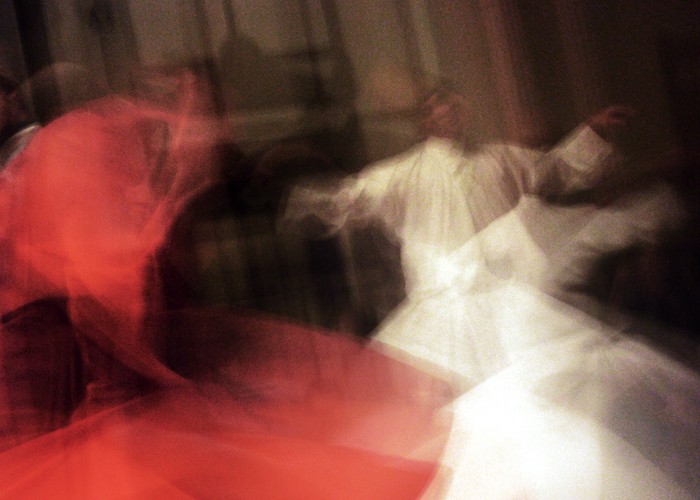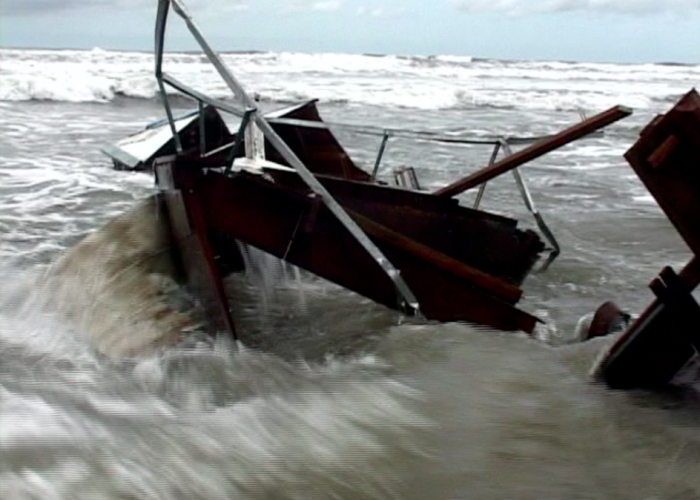What You Tell Me, I Know
Melissa Phipps
When, at age twenty-five, my agoraphobia struck again, my favorite cousin Marie recommended that I see Dr. Schwartz. Dr. Schwartz was purportedly the Lourdes of psychiatry. He had cured artists, celebrities and billionaires. A famous writer had written his best book after a year with him. An actress had played her best role.
Dr. Schwartz’s office was on the basement floor of his oyster white townhouse on the Upper East Side. Iron bars covered the grimy window in the waiting room dooming it to perpetual twilight. In the corner, a dark screen concealed a wooden chair. Patients who didn’t wish to be seen could sit there. I assumed they were the richest or most famous of Dr. Schwartz’s practice and that it would be preposterous to hide there, yet I got embarrassed if I encountered a patient on his or her way out. Did they think I was spying? Perhaps they had a phobia of other mental patients. Perhaps the considerate thing was to hide. Dr. Schwartz wasn’t clear on waiting room protocol. There were supposed to be five minute intervals between appointments so patients didn’t meet, but Dr. Schwartz wasn’t clear on time either.
Dr. Schwartz was in his eighties. He had a thin, pasty face and a lumpy body that looked as if he’d stuffed his clothes with beer cans. Even on mild days he sported a jet-black lamb’s wool hat and interrupted me to ask that I turn up the heater. I worried that, like my father, he would die before I was ready to be on my own.
“You’ll be all right, sweet,” Marie said when, terrified to be on my own, I moved back into her airy Fifth Avenue apartment. She and her husband were warm, intelligent. They had been the best guardians anyone could wish for. I’d been in the care of various guardians since I was thirteen and my father had died of a heart attack. My mother lived in England. She had suffered a nervous breakdown while married to my father. I hadn’t seen her in years. I told myself I didn’t miss her and then for days I would feast on Marmite or a bowl of tiny English peas. The last time I’d lived with my cousins, I’d been seventeen going on eighteen. Now I was supposed to be a grown-up.
I’d never heard of double sessions before, but Dr. Schwartz said several of his patients doubled up and in no way did it reflect the severity of neurosis. “You got something else to do with your time?” he asked. I didn’t. I’d had to give up my job as a secretary for a talk radio station when the panic attacks returned.
My life became structured around two hour analytic sessions four times a week, paid for with money left by my father. I only had to travel ten blocks to Dr. Schwartz’s office, but I couldn’t walk there. I had to steel myself to venture outside the Fifth Avenue lobby to wait for a cab. Once I confessed the agoraphobia to Dr. Schwartz that I’d tried to hide for so long, I surrendered to it, existing in a miasma of fear, spending my time either recovering or anticipating attacks. It seemed to me that I was worse off than ever, but I believed Dr. Schwartz when he told me that wasn’t the case. Perhaps like a fever, I thought, agoraphobia had to peak before it waned.
“Put the Kleenex under your head,” Dr. Schwartz said. “You want someone’s dandruff?”
There was a box of Kleenex on the table beside the black leather couch where I lay. As the first hour of my session was mostly taken up with tears, I made frequent use of it.
Something heavy, perhaps a table, scraped across the floor upstairs. A loud bang followed. Mysterious noises from upstairs would become a common interruption of my treatment, as would Dr. Schwartz’s personal phone calls. Dr. Schwartz would look up at the ceiling, a resigned expression on his face. Sometimes he’d call his wife and shout cryptic questions: “Are they there? Did you get it? What time did he say?“ When he was finished, he’d slam the phone down without saying goodbye.
“You’re not being clear,” Dr. Schwartz said. “I don’t get a picture. You thought you might disappear? How did you think you could manage that, a sturdy girl like you?”
I’d been telling him about how when I’d walk from the radio station to the Second Avenue Deli to get my lunch, a terrifying haze would overcome me. Sweating, I’d feel myself fading into the low sky. One step more and I was sure I’d vanish, my consciousness drifting to some sealed off place where no one could reach me.
“That or go crazy,” I said, gritting my teeth.
“What, someone was going to hit you over the head?”
“You don’t understand,” I said, frustrated. My sweater had ridden up my back.
“I understand that you don’t give a clear picture. What did it smell like, this attack? Menstrual blood?”
I flushed with embarrassment and grabbed a Kleenex. The couch pulled away from my skin with a rude noise. “Feelings don’t have smells,” I said.
“I’m trying to get you to look at these episodes,” Dr. Schwartz said.
“I look at them all day.” I started to cry again. “They’ve taken over my life. You act as if you don’t even believe me.”
Dr. Schwartz acknowledged that the attacks existed, if only in my mind. He likened my agoraphobia to a stubborn root that curled its tendrils around a reptilian part of my brain that signaled catastrophes.
“We will yank the root out,” he said as if it were a rotten tooth. “When I get done with you, you’ll be able to walk on the moon.”
“I don’t care about the moon,” I said.
“What’s wrong with the moon?” Dr. Schwartz asked, throwing his hands into the air.
I started analysis at the end of summer. For two hours, every Monday, Tuesday, Thursday, Friday, I fidgeted on the couch with nothing to look at but a photograph of empty chairs in a Parisian park on the opposite wall. On my worst days, I felt too shaky for the couch and instead sat in a chair opposite Dr. Schwartz who said he could analyze me even if I hung from a chandelier. I gave up liquor, caffeine, cigarettes and cocaine. I wrote my dreams down in a black notebook, chronicled my listless days. The sessions consisted of dreams, free association and the history of the Israelites. I particularly remember Ham and his tribe. Ham, whose father, the great Noah, was drunk and naked. When I went in without a dream, Dr. Schwartz would have me verbalize whatever passed through my head. Instantly, the most pornographic scenarios occurred to me and I would hesitate, trying to redirect my thoughts.
“No censoring,” Dr. Schwartz roared. “You must fire the censor. He does you no good.”
I liked the dream work better. It was a little like discussing a book or a poem. Sometimes the dream analogies were clever or funny and I was surprised they came from me. The panic attacks continued. Once, I managed to walk to Zitomers, a fancy drugstore six blocks away that sold everything from cosmetics to diamonds. I drifted like a vapor among chic women examining perfumes, hair ornaments and mascara. I didn’t need mascara. I didn’t go out. My outing didn’t impress Dr. Schwartz and, as it turned out, I couldn’t repeat it.
Friends existed only on the telephone. There weren’t many. I didn’t want to explain that I couldn’t leave the apartment because I had something called agoraphobia, the silliest mental illness ever. The National Enquirer called it the housewife’s disease.
Mostly, I talked to JA, sweet, drunken JA, my ex-boyfriend from Virginia, who still loved me even though I’d cheated on him repeatedly and had left him for New York. JA still hoped that I’d return to his log cabin, less than ten miles down the road from where I used to live with my father. We talked for hours. My cousins had to install a separate line so they, too, could use the phone. They were too kind to say anything, but I was clearly an inconvenience.
One Saturday, Marie asked me to the matinee of a Sam Shepard play. I agreed but as the hour drew closer, an increasing uneasiness morphed into a full-blown attack. Marie offered to stay home with me. She’d looked forward to the theatre but I was too distraught to refuse.
“You kept her from going to the theatre?!” Doctor Schwartz yelled. Fury had made him short of breath. “She offers you a place to live and you won’t let her go to the theatre? A woman like that?”
“I didn’t mean to.”
“How dare you keep that nice woman from the theatre after everything she’s done for you?”
“Do you think I enjoy being a clingy invalid?” I shouted back. “You said agoraphobia was a cinch.”
“I am tired of hearing that word,” Dr. Schwartz said. “Agoraphobia, schmoraphobia.” He pulled the Kleenex from under my head and blew his nose.
Like a paraplegic I was mobile only in sleep. I lived for dreams and a late night call from JA. “Hey, baby,” he said. “I don’t understand what’s happening with you but I wish you’d come home. I can take care of you better than that old quack.”
How I wished that JA was the solution, but he could barely take care of himself. Not only did he have a drinking problem but, before I met him, he’d suffered a brain aneurism that left him with double vision. The doctor had recommended another operation. He’d refused.
“You don’t have to sleep with me if you don’t want to. Just come back.”
“I think I ought to try a hospital,” I told Dr. Schwartz. “At least I wouldn’t be a burden anymore.” Raindrops made furrows in the grime on the window. Damp seeped into the room. I wondered how long I’d have to wait for a cab in the rain. Winter was coming.
“The only thing you’ll get in a hospital,” Dr. Schwartz said, is a lot of baths. Bathing you can do at home. We are making progress.”
The weeks ground on. Snow shrouded the city. I celebrated the New Year with fizzy apple juice and wondered if the year would come when I could live like a normal person. By January 2nd, I was back on the couch again. It was one of those unfruitful sessions when I didn’t have a dream and Dr. Schwartz told stories of his famous patients. Grace Kelly, still alive, came up. She’d ruined herself, Dr. Schwartz informed me. She’d only married Rainier in order to have the Monaco army at her disposal. I interrupted Dr. Schwartz and asked why Grace Kelly needed an army. Was she intending to go to war?
“For what would Grace Kelly want a war?” Dr. Schwartz sputtered in surprise. “She wanted to fuck young men. That’s what the army was for.” He spoke bitterly and it was obvious that Grace Kelly’s marriage, some thirty years ago, still rankled him.
“Do you remember what happened to her career after Rainier?” Dr. Schwartz asked. He didn’t give me a chance to answer. “Ruined. Got fat. She should’ve come back to analysis.”
I chewed my thumbnail and wondered if Monaco actually had an army.
“Grace Kelly looked demented even when she was thin,” JA said that evening. “Marilyn Monroe, Grace Kelly, that writer fella, does your Doctor ever treat regular people?”
“Probably,” I said, although I doubted many regular people could afford analysis.
“I wish you’d come back,” JA said. “I wouldn’t care if you got fat.”
It took me a while to figure out what Dr. Schwartz was up to. I thought he was just being peculiar when he started working on improving my appearance. I shouldn’t wear jeans all the time, he told me. A dress wouldn’t kill me.
“My appearance doesn’t have anything to do with agoraphobia,” I said.
“Your clothes might have a great deal to do with your problems,” Dr. Schwartz said. “Your hair could use some work.” Then he mentioned that his son was blond. “He doesn’t look Jewish. You’d never guess.”
“Really,” I said, feigning a polite, if bewildered, interest.
“We’ll talk about this in a second,” Dr. Schwartz said, groaning as he struggled to his feet with the help of two canes. Dr. Schwartz always had to go to the bathroom at some point in the session. The walls of the townhouse were thin. I could hear the jingle of his urine, the roar of the toilet and then came the heavy panting, the slow painful footsteps that reminded me of my father the year he died.
“So where were we?” he grunted, settling himself in his chair. “You see my wife is Swedish, pure Swedish.”
“It must be against the rules for a patient to go out with the son of her analyst,” I said. I imagined myself as part of the mysterious upstairs. The daughter-in-law whose father-in-law knew every awful secret, every depraved act. It was unthinkable.
“No such rule,” Dr. Schwartz said. “Now if I were a young man, I would know exactly what to do with you. I would take off your clothes and slowly move my tongue over every inch of your body. A beautiful passionate woman like you, I would take a great deal of time. First I would nuzzle your nipples…”
“I get it.” I had heard this speech before and it made me squirm. Perhaps Dr. Schwartz was trying to instill confidence in me, but it was a tactic I could do without. Weeks before, he’d placed a self -portrait of himself as a young man at the end of the couch. He said transference might be more easily achieved if I envisioned a younger version of him. Finally, the portrait disappeared.
I walked into the office one day to find a blond man opening and shutting drawers to the desk. Dr. Schwartz, with a sly grin, rose from his chair. “I’ll be right back,” he said. “I’ve got to fetch something from upstairs. Introduce yourselves.” He pointed to the blond man. “My son, George.”
George looked glumly at me.
“I hear you’ve played Carnegie Hall,” I said, reddening.
“That was a while ago,” George said.
“Wonderful,” I muttered, looking down at my purse and wishing I had a newspaper or book. It seemed an age before Dr. Schwartz returned.
“That was tricky,” I said, when George left.
“What’re you talking about?”
“Matchmaking.”
“I went upstairs to match make? I had no idea George would be here. He doesn’t inform me of his plans. I needed his help finding an important paper.”
“At exactly the time of my appointment,” I sighed.
“Would it hurt so much to make a new friend? He plays the violin. Much better than the rock shit you listen to.”
“I can’t make friends,” I said. “I can’t get out the door.
The calendar said April but the thermometer indicated February. “It’s so cold, I’m wearing my socks and hat to bed,” JA said. He was drunk, tired. His voice sounded like he’d wadded one of the socks into his mouth. He planned to come to New York for a weekend and take me to a hotel. I doubted that would happen. I wasn’t well enough to go to a hotel.
It was JA, not Dr. Schwartz, who finally got me out of the house and onto a plane. A freak April snowstorm in Virginia turned the roads to ice. JA’s body was found in his smashed car underneath the Goose Creek bridge. Armed with a pint of Scotch, I flew to Dulles where Doug Alken, JA’s best friend since childhood, met me. I’d forgotten how serious and yet boyish Doug looked. We were going to the funeral together but at the last minute, I couldn’t. I just couldn’t. Doug dropped me off at the cottage where Mrs. Dawson had lived, but which since my father’s death belonged to me. I turned on the heat and fell into bed with my clothes on. When I woke up, the room smelled like cooking and Doug was adjusting the thermostat. He got into bed with me, pulled my sweater over my head. “It’s too hot for clothes,” he said. In the four days we spent together, we lost track of time. We whispered each other’s names with fetid breath. We kissed with swollen, furred tongues. We ate saltines and rat cheese. Bourbon and Gingerale. Doug called his girlfriend. He was sick, he told her. He couldn’t come home just yet. It’s true that his eyes were glassy and dim. Rain fell in long needles. Wind rattled a loose gutter. We kissed and I breathed in his breath for air. And yet, not much later than a year, when I tried to summon his face I saw only a pale smudge that might have belonged to anyone. I had gotten a postcard saying he was alone in North Carolina. I was married by then.
The plane trip had broken agoraphobia’s hold. I could move around. Not as far away as England, but Zitomers no longer presented a problem. I managed to finish college and then graduate school. I had a child. I still saw Dr. Schwartz, but not for double sessions. When his wife died, he waved away my sympathies as if they were a cloud of gnats. “I’m fine,” he said. Marie said she had heard otherwise. “It’s time to leave, my sweet. You don’t have to stay with a sinking ship.”
I was the last of Dr. Schwartz’s patients to leave. Sometimes he dozed throughout the entire session. He lost track of my dreams, forgot I was married. I went less and less, finally not at all. He begged me to come back. I said I would think about it. He rang the next day.
“Call an ambulance,” he said. “I need an ambulance over here.” He hung up before I could say a word.
I called back. “Are you all right?”
“What could be wrong?” he asked. “I’ll see you tomorrow. The usual time.”
I told him I wasn’t coming back.
“Have you lost your mind? We are on the verge of a breakthrough.”
“You never once thought I lost my mind,” I said. “And for that I am very grateful.”
“Melissa!”
“I shall miss you very much,” I said softly and hung up the phone.
Every now and again I conjure up his office from the coils of memory and although I was there every season, it is always winter. The bars of the electric fire rumble and glow. Something like a bowling ball rolls over our heads. I sit in the leather chair opposite Dr. Schwartz who wears shapeless black trousers, orthopedic shoes and a Russian hat. It is late afternoon. Shadows bruise the walls. Dr. Schwartz turns the dial on the heater. It rocks, buzzes and gets so bright that I fear it may explode. Instead, it dies to an ember. A faint breath slips through the iron-barred windows: Ham, my father, Grace Kelly, a much younger me.
* *
Imagen: “Pájaros” de Ernestina Anchorena
[ + bar ]
Bibliothèque nationale de France
Victoria Liendo translated by Victoria Lampard
To Charles Coustille, guilty of making me love France, he who declares himself innocent of everything.
Libraries very much resemble churches: there are some that can... Read More »
A Love Story
Bernardo Carvalho translated by Max Seawright
1.
He haggles over fish at the wharf. He’s done it since before his tenth birthday. His mother makes him. It’s no accident he... Read More »
Passages: My Art as an Everything
Natalia Brizuela on Nuno Ramos translated by Andrea Rosenberg
“No sé.” “I don’t know.” That’s the response Tintin and Captain Haddock get from the inhabitants of the Andean country—vaguely... Read More »
The Pizarro Sisters
Juan Álvarez translated by Heather Cleary
“What,” I said. That was how I answered the phone then. It was a forceful what—scrappy, combative. But combative isn’t quite the word, because... Read More »








 sending...
sending...